第48章
It wound as near as near could be, But what it is she cannot tell;
On the other side it seemed to be Of the huge broad-breasted old oak-tree. COLERIDGE.
Mrs. Bethune Baliol's memorandum begins thus:--It is five-and-thirty, or perhaps nearer forty years ago, since, to relieve the dejection of spirits occasioned by a great family loss sustained two or three months before, I undertook what was called the short Highland tour. This had become in some degree fashionable; but though the military roads were excellent, yet the accommodation was so indifferent that it was reckoned a little adventure to accomplish it. Besides, the Highlands, though now as peaceable as any part of King George's dominions, was a sound which still carried terror, while so many survived who had witnessed the insurrection of 1745; and a vague idea of fear was impressed on many as they looked from the towers of Stirling northward to the huge chain of mountains, which rises like a dusky rampart to conceal in its recesses a people whose dress, manners, and language differed still very much from those of their Lowland countrymen. For my part, I come of a race not greatly subject to apprehensions arising from imagination only.
I had some Highland relatives; know several of their families of distinction; and though only having the company of my bower-maiden, Mrs. Alice Lambskin, I went on my journey fearless.
But then I had a guide and cicerone, almost equal to Greatheart in the Pilgrim's Progress, in no less a person than Donald MacLeish, the postilion whom I hired at Stirling, with a pair of able-bodied horses, as steady as Donald himself, to drag my carriage, my duenna, and myself, wheresoever it was my pleasure to go.
Donald MacLeish was one of a race of post-boys whom, I suppose, mail-coaches and steamboats have put out of fashion. They were to be found chiefly at Perth, Stirling, or Glasgow, where they and their horses were usually hired by travellers, or tourists, to accomplish such journeys of business or pleasure as they might have to perform in the land of the Gael. This class of persons approached to the character of what is called abroad a CONDUCTEUR; or might be compared to the sailing-master on board a British ship of war, who follows out after his own manner the course which the captain commands him to observe. You explained to your postilion the length of your tour, and the objects you were desirous it should embrace; and you found him perfectly competent to fix the places of rest or refreshment, with due attention that those should be chosen with reference to your convenience, and to any points of interest which you might desire to visit.
The qualifications of such a person were necessarily much superior to those of the "first ready," who gallops thrice-a-day over the same ten miles. Donald MacLeish, besides being quite alert at repairing all ordinary accidents to his horses and carriage, and in making shift to support them, where forage was scarce, with such substitutes as bannocks and cakes, was likewise a man of intellectual resources. He had acquired a general knowledge of the traditional stories of the country which he had traversed so often; and if encouraged (for Donald was a man of the most decorous reserve), he would willingly point out to you the site of the principal clan-battles, and recount the most remarkable legends by which the road, and the objects which occurred in travelling it, had been distinguished. There was some originality in the man's habits of thinking and expressing himself, his turn for legendary lore strangely contrasting with a portion of the knowing shrewdness belonging to his actual occupation, which made his conversation amuse the way well enough.
Add to this, Donald knew all his peculiar duties in the country which he traversed so frequently. He could tell, to a day, when they would "be killing" lamb at Tyndrum or Glenuilt; so that the stranger would have some chance of being fed like a Christian; and knew to a mile the last village where it was possible to procure a wheaten loaf for the guidance of those who were little familiar with the Land of Cakes. He was acquainted with the road every mile, and could tell to an inch which side of a Highland bridge was passable, which decidedly dangerous. [This is, or was at least, a necessary accomplishment. In one of the most beautiful districts of the Highlands was, not many years since, a bridge bearing this startling caution, "Keep to the right side, the left being dangerous."] In short, Donald MacLeish was not only our faithful attendant and steady servant, but our humble and obliging friend; and though I have known the half-classical cicerone of Italy, the talkative French valet-de-place, and even the muleteer of Spain, who piques himself on being a maize-eater, and whose honour is not to be questioned without danger, I do not think I have ever had so sensible and intelligent a guide.